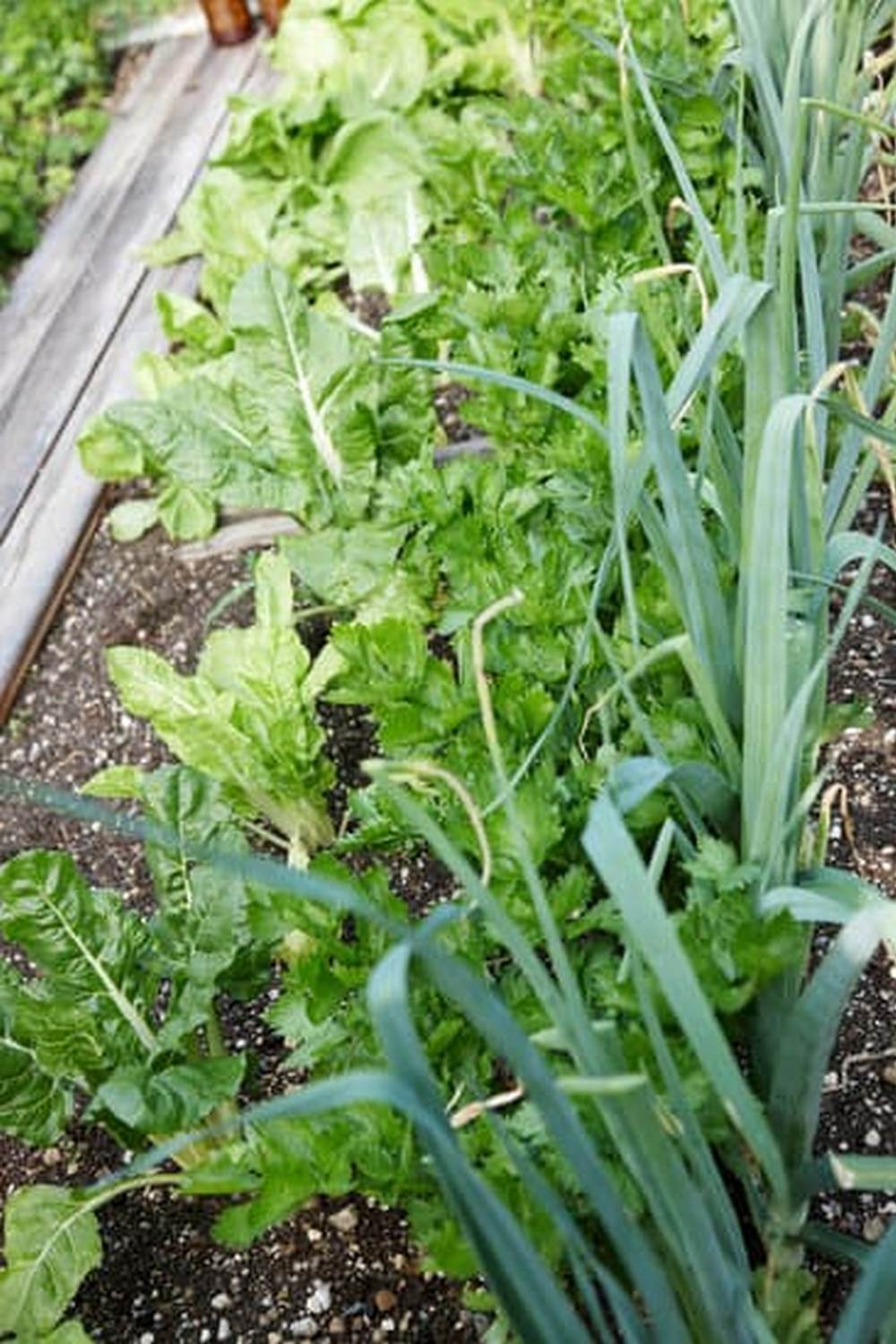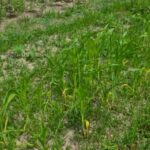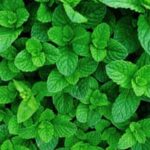Vegetable gardening in south Georgia offers a unique set of challenges and opportunities due to the region’s specific climate and soil conditions. With its warm, humid weather and rich agricultural history, South Georgia presents an ideal environment for cultivating a variety of delicious, homegrown vegetables.
In this article, we will explore the factors that impact vegetable gardening in the region and provide valuable insights on choosing the right vegetables, soil preparation, seasonal planting guide, watering and irrigation tips, pest and disease management, harvesting and preserving techniques, as well as success stories from local gardeners.
The climate and soil conditions of South Georgia play a significant role in determining the success of vegetable gardening in the area. Understanding these factors is crucial for selecting suitable vegetables and implementing effective cultivation practices. With proper knowledge and techniques, gardeners can harness the potential of South Georgia’s environment to grow bountiful crops of nutritious produce.
Selecting the right vegetables for South Georgia is essential for a thriving garden. Certain varieties are better suited to withstand the region’s warm temperatures and high humidity levels. By choosing appropriate vegetables that are resilient to these conditions, gardeners can maximize their harvests and enjoy a successful gardening experience. Throughout this article, we will highlight specific vegetables that thrive in South Georgia’s unique climate and discuss various varieties that are well-suited for the region’s growing conditions.
Choosing the Right Vegetables for South Georgia
When it comes to vegetable gardening in South Georgia, selecting the right vegetables is crucial for success. The warm, humid climate of the region presents both opportunities and challenges for gardeners, and choosing vegetables that thrive in these conditions is essential. Here are some top picks for vegetables that are well-suited for South Georgia:
- Tomatoes: South Georgia’s long, hot growing season provides the perfect environment for tomatoes to flourish. Varieties such as ‘Celebrity’, ‘Rutgers’, and ‘Cherokee Purple’ are known to do particularly well in the region.
- Peppers: Bell peppers, banana peppers, and jalapenos are excellent choices for South Georgia gardens. These heat-loving plants thrive in the region’s warm temperatures and can produce bountiful harvests.
- Okra: Known for its tolerance of hot weather, okra is a popular choice for South Georgia gardens. Varieties like ‘Clemson Spineless’ and ‘Annie Oakley’ are well-adapted to the region’s climate.
In addition to these vegetables, other suitable options include squash, cucumbers, eggplant, and sweet potatoes. These vegetables have been proven to perform well in South Georgia’s unique climate and soil conditions.
Selecting the right varieties is just as important as choosing the right vegetables when it comes to vegetable gardening in South Georgia. When sourcing seeds or transplants, it’s advisable to look for specific cultivars that have been bred for heat tolerance, disease resistance, and overall suitability to the region’s growing conditions. By doing so, gardeners can set themselves up for success and maximize their yields in their South Georgia vegetable gardens.
Preparing the Soil for Vegetable Gardening
Tips for Soil Preparation
When it comes to vegetable gardening in South Georgia, soil preparation is crucial for successful crops. The region’s soil tends to be sandy and acidic, posing unique challenges for gardeners. To address these issues, it’s essential to amend the soil with organic matter such as compost, well-rotted manure, and peat moss. These amendments help improve soil structure, drainage, and nutrient content, creating a more hospitable environment for vegetable plants to thrive.
Organic Soil Amendments
In addition to incorporating organic matter into the soil, South Georgia gardeners can also utilize natural soil amendments to enhance fertility and overall plant health. This includes materials like fish emulsion, bone meal, kelp meal, and other organic fertilizers that provide essential nutrients without the use of synthetic chemicals. By focusing on organic soil amendments, gardeners can promote sustainable and environmentally-friendly practices while nourishing their vegetable gardens.
Benefits of Proper Soil Preparation
By taking the time to properly prepare the soil for vegetable gardening in South Georgia, gardeners can expect higher yields, healthier plants, and improved resistance to environmental stressors. Well-amended soil with balanced pH levels provides a solid foundation for robust root development and optimal nutrient uptake by vegetable crops. Ultimately, investing in soil preparation can lead to more bountiful harvests and greater success in cultivating a thriving vegetable garden in South Georgia.
Seasonal Planting Guide for South Georgia
When it comes to vegetable gardening in South Georgia, understanding the region’s seasonal planting guide is essential for a successful harvest. The unique climate of South Georgia, characterized by its hot and humid conditions, plays a significant role in determining the best times to plant specific vegetables. With the right knowledge and timing, gardeners can optimize their yield and ensure that their crops thrive in this environment.
In South Georgia, it’s crucial to take into account the long growing season when planning your vegetable garden. Vegetables such as tomatoes, peppers, and okra thrive in the warm temperatures and well-drained soil of the region.
These heat-loving crops should be planted after the last frost date, which typically occurs in late March or early April. However, some hardier vegetables like kale, collard greens, and carrots can withstand cooler temperatures and are best planted in late winter for an early spring harvest.
Adapting to the unique climate of South Georgia also means being mindful of the intense summer heat. During this time, it’s important to focus on heat-tolerant vegetables such as sweet potatoes, Southern peas, and eggplant. Planting these heat-loving crops during late spring ensures that they have ample time to mature before the peak of summer arrives.
Additionally, utilizing shading techniques or mulching can help protect delicate plants from the scorching sun. Understanding these nuances of seasonal planting is key to a thriving vegetable garden in South Georgia.
Watering and Irrigation Tips
When it comes to vegetable gardening in South Georgia, one of the most critical aspects is ensuring that your plants receive adequate water. The hot and humid climate of the region can pose challenges when it comes to irrigation, but with the right tips and techniques, you can help your vegetables thrive.
One key consideration for watering in South Georgia is the frequency of irrigation. With the intense heat during the growing season, plants may require more frequent watering to prevent soil from drying out. It’s essential to monitor soil moisture levels regularly and adjust your watering schedule accordingly.
In addition to frequency, the method of irrigation is also important. Drip irrigation systems are highly recommended for vegetable gardening in South Georgia. These systems deliver water directly to the base of plants, minimizing water loss through evaporation and ensuring that each plant receives an adequate amount of hydration.
Another crucial aspect of watering and irrigation in South Georgia is timing. Watering in the early morning or late afternoon helps reduce water loss due to evaporation and ensures that plants have access to moisture when they need it most.
Additionally, providing consistent and even moisture levels can help prevent common issues such as blossom end rot in tomatoes and peppers. By implementing these best practices for watering and irrigation, you can support healthy growth and abundant yields in your South Georgia vegetable garden.
| Watering Tips | Irrigation Methods |
|---|---|
| Monitor soil moisture regularly | Drip irrigation systems |
| Water frequently in hot weather | Soaker hoses |
| Avoid overwatering to prevent root rot | Raised bed irrigation systems |
Pest and Disease Management for South Georgia Gardens
When it comes to vegetable gardening in South Georgia, one of the key challenges that gardeners face is managing pests and diseases that can impact their crops. The warm, humid climate of the region creates an ideal environment for various pests and diseases to thrive, making it essential for gardeners to be proactive in their approach to prevention and management.
Identifying Common Pests and Diseases
In South Georgia, vegetable gardens are susceptible to a range of common pests such as aphids, caterpillars, and whiteflies, as well as diseases like powdery mildew, bacterial spot, and root rot. Understanding the signs and symptoms of these issues is crucial for early detection and prompt action.
Solutions and Organic Methods
When it comes to managing pests and diseases in South Georgia gardens, many gardeners prefer to use organic methods whenever possible. This may include introducing beneficial insects for pest control, using natural sprays such as neem oil or insecticidal soap, and practicing crop rotation to minimize disease pressure in the soil.
Integrated Pest Management
Implementing an integrated pest management (IPM) approach is highly recommended for vegetable gardening in South Georgia. This method involves a combination of cultural, biological, and physical controls along with minimal use of pesticides. By promoting healthy plant growth through proper soil preparation and watering practices, as well as encouraging natural predator populations in the garden, IPM can effectively manage pest and disease issues while minimizing environmental impact.
As any experienced gardener knows dealing with pests is part art part science so some trial error will be needed but with care your vegetables are sure to flourish in your vegetable garden.
Harvesting and Preserving Your South Georgia Vegetable Garden
When it comes to vegetable gardening in South Georgia, the joy of harvesting fresh, homegrown produce is unmatched. The region’s unique climate and soil conditions create an ideal environment for growing a wide variety of vegetables, ranging from peppers and tomatoes to okra and collard greens. Once your vegetables are ready for harvest, it’s important to make the most out of your bountiful yields by effectively preserving them for future use.
Tips for Harvesting Vegetables
- Harvest in the morning when temperatures are cooler to prevent wilting
- Use sharp pruners or scissors to avoid damaging plants
- Handle produce carefully to prevent bruising or other damage
After harvesting your vegetables at the peak of freshness, you can take steps to preserve them for later enjoyment. Canning, freezing, and pickling are popular methods for extending the shelf life of your homegrown produce. Consider creating flavorful salsas and relishes with your ripe tomatoes and peppers, or blanching and freezing extra squash and green beans for use in soups and stews during the winter months.
Suggestions for Preserving Excess Yields
- Invest in canning equipment for long-term preservation
- Utilize vacuum-sealing bags for efficient freezer storage
- Experiment with pickling recipes to create tangy and flavorful preserves
By incorporating the practice of harvesting and preserving into your vegetable gardening routine, you can enjoy the fruits of your labor long after the growing season has ended. Whether you’re stocking up on homemade tomato sauce or savoring the crunch of pickled cucumbers in the dead of winter, preserving your South Georgia vegetable garden’s bounty allows you to savor its flavors year-round.
Success Stories and Tips From South Georgia Gardeners
In conclusion, vegetable gardening in South Georgia presents a unique set of challenges and opportunities due to the region’s specific climate and soil conditions. With the right knowledge and techniques, however, gardeners can find great success in cultivating a thriving and productive garden. By understanding the impact of factors such as heat, humidity, and soil composition, individuals can make informed decisions when choosing vegetables to plant and preparing their gardens for optimal growth.
One of the key aspects of successful vegetable gardening in South Georgia is selecting the right vegetables that are well-suited for the warm and humid climate of the region. Through careful consideration of varieties that thrive in these conditions, gardeners can set themselves up for success from the outset. Additionally, amending and preparing the soil with organic and natural amendments can further support healthy plant growth and yield.
Effective watering and irrigation practices are essential for vegetable gardening in South Georgia, given the hot and humid climate. Understanding the specific water needs of different vegetables and implementing efficient irrigation methods can help prevent issues such as waterlogging or drought stress. Furthermore, implementing pest and disease management strategies that are tailored to South Georgia’s environment is crucial for maintaining healthy plants throughout the growing season.
Overall, through learning from local success stories and incorporating proven tips from experienced South Georgia gardeners, individuals can gain valuable insights into best practices for vegetable gardening in this region. By embracing innovative techniques, making informed choices on plant selection, soil preparation, watering practices, pest management, harvesting methods, and preservation strategies, both novice and experienced gardeners can achieve flourishing vegetable gardens in South Georgia.
Frequently Asked Questions
What Vegetables Grow Best in South Georgia?
In South Georgia, vegetables that grow best include okra, sweet potatoes, tomatoes, peppers, cucumbers, and southern peas. The hot and humid climate of the region is well-suited for these heat-loving crops.
What Zone Is Georgia for Planting Vegetables?
Georgia is divided into different USDA plant hardiness zones, ranging from 6b to 8a. This means that the state has a varied climate suitable for a wide range of vegetable plants. Different parts of the state may fall into different zones.
Which Region of Georgia Would Be Best Suited for Growing Vegetables?
The southern region of Georgia, including areas like Valdosta and Albany, is best suited for growing vegetables due to its longer growing season and milder winters. This region benefits from a subtropical climate and fertile soil which are ideal for vegetable cultivation.

If you’re looking to get into vegetable gardening, or are just looking for some tips on how to make your current garden better, then you’ve come to the right place! My name is Ethel and I have been gardening for years. In this blog, I’m going to share with you some of my best tips on how to create a successful vegetable garden.





